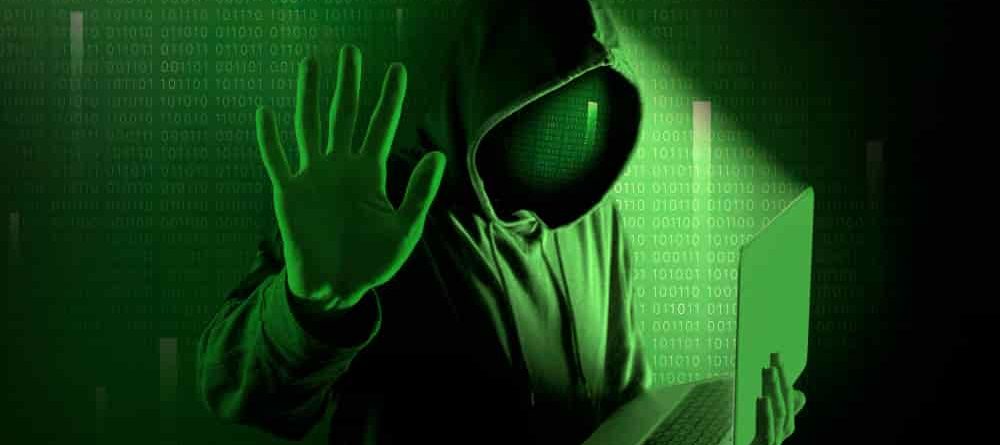Cyber Security and Ethical Hacking Protecting the Digital World
Cyber security and ethical hacking play a vital role in safeguarding our digital lives. The digital world is evolving rapidly, with that evolution comes countless opportunities and risks. Protecting systems is more important than ever, from personal data theft to massive Distributed Denial of Service (DDoS) attacks. This is where the disciplines of cyber security and ethical hacking step in.
Whether you’re wondering how ethical hackers use their skills for good or simply curious about the frameworks safeguarding our online spaces, this guide covers it all. By the end, you’ll understand their significance, how they interconnect, and how you can start a career in one of these vital fields.
What is Cyber Security?
At its core, cyber security refers to protecting systems, networks, and programs from digital attacks. These attacks often aim to access, change, or destroy sensitive information, extort money from users, or disrupt normal business operations. Traditional methods aren’t enough anymore, so cyber security continues expanding its scope with advanced tools and processes.
Core Components of Cyber Security
Cyber security generally encompasses several overlapping areas, including:
- Network Security – Safeguarding a computer network from intruders and accidental or malicious threats.
- Application Security – Ensuring applications stay secure from vulnerabilities during their creation and deployment phases.
- Information Security – Protecting the integrity and privacy of data in storage and transit.
- Operational Security – Managing how data assets are handled and accessed.
- Disaster Recovery – Establishing a framework to resume business operations swiftly after a cyber attack or data breach.
Effective cyber security requires a proactive mindset and constant vigilance. And that’s where ethical hackers often come into play.
What is Ethical Hacking?
Unlike malicious hackers, ethical hackers (often referred to as white-hat hackers) use their skills to identify and fix system vulnerabilities. Ethical hacking is a proactive way to uncover weaknesses before bad actors can exploit them.
Common Activities in Ethical Hacking
Some of the tasks ethical hackers perform include:
- Vulnerability Scanning – Searching for weak spots in systems, networks, and software applications.
- Penetration Testing – Simulating cyber-attacks to check the effectiveness of security frameworks.
- Social Engineering – Experimenting with phishing methods or impersonations to test the human component of security.
- Reporting and Patching – Documenting vulnerabilities and helping organizations develop actionable fixes.
Ethical hackers operate within strict legal and professional boundaries, following a code of conduct and using permissions granted by the systems’ owners. Essentially, they are the good guys of hacking, working to battle the bad guys before any real damage can occur.
The Relationship Between Cyber Security and Ethical Hacking

Cyber security and ethical hacking are deeply interconnected. While cyber security focuses on implementing and monitoring security frameworks, ethical hacking is the testing and improvement arm of these efforts.
Think of cyber security as building a fortress and ethical hackers as those testing its defenses. Ethical hackers help organizations understand where their security frameworks might fail by identifying vulnerabilities.
Key Ways Ethical Hacking Supports Cyber Security:
- Identifies system weaknesses before cybercriminals can exploit them.
- Ensures compliance with regulatory security standards.
- Boosts organizational trustworthiness by improving data and network protection.
While both areas have different assignments, their overarching goal remains the same: protecting systems and data in the digital environment.
Why They Matter More Than Ever
The world generates massive amounts of information daily, and that data needs to be protected. The rise in threats—from ransomware attacks to Distributed Denial of Service (DDoS)—underscores why cyber security and ethical hacking are so critical today.
Growing Cyber Threats
Here are some alarming statistics that highlight the urgency of effective cyber security:
- According to Cybersecurity Ventures, global cybercrime costs are expected to reach $8 trillion in 2023.
- The average data breach cost for businesses is approximately $4.35 million.
Escalating Sophistication in Attacks
Hackers have become persistent and innovative. New attacks, like AI-powered malware and targeted phishing strategies, force businesses and governments to stay ahead of the curve.
Solutions like proactive ethical hacking aren’t just valuable; they’re indispensable. Organizations can shield themselves against even the most sophisticated digital threats by continually testing and reinforcing infrastructures.
Want to Start a Career in Cyber Security or Ethical Hacking?
Given these fields’ critical roles, it’s no surprise that careers in cyber security and ethical hacking are in demand. Not only are these professions rewarding, but they also offer pathways to make a significant positive impact.
Steps to Start Your Career
- Learn the Basics – Start by understanding fundamental concepts such as networks, operating systems, and security protocols.
- Gain Certifications – Some of the most sought-after certifications include CompTIA Security+, Certified Ethical Hacker (CEH), and Certified Information Systems Security Professional (CISSP).
- Build Hands-On Experience – Practice with open-source tools like Metasploit, Wireshark, or Kali Linux. Participate in hackathons or join bug bounty programs.
- Stay Updated – The tech landscape evolves quickly. Regularly follow updates on security threats and new ethical hacking techniques.
Career Opportunities
Both cyber security and ethical hacking open doors to various roles, including:
- Cyber Security Analyst
- Penetration Tester
- Security Consultant
- Threat Intelligence Analyst
- IT Auditor
With businesses, governments, and institutions worldwide investing heavily in safeguarding their systems, the demand for skilled professionals in these domains is only expected to grow.
Transform Your Passion for Protecting the Digital World
Cyber security and ethical hacking are no longer optional for organizations wanting to thrive in today’s digital-first landscape. Understanding their significance and interplay can help you better appreciate their role in creating a safer online environment.
Whether you’re protecting systems for a business or testing vulnerabilities as a white-hat hacker, you’re contributing to the critical mission of securing the digital world. Interested in entering this fascinating field? Start exploring certifications, tools, and communities and take the first step toward an exciting career.
No matter where you’re starting from, the opportunities for growth and impact in this field are endless.



Comments (2)
Really appreciated this detailed explanation of ethical hacking. The content is educational and serves both technical and non-technical readers well. Particularly liked the emphasis on ethical boundaries. Looking forward to deeper technical content ahead.
I’ve always been curious about ethical hacking but didn’t know where to start. This blog gave me a clear roadmap—from certifications to tools. Thanks for making it so accessible!